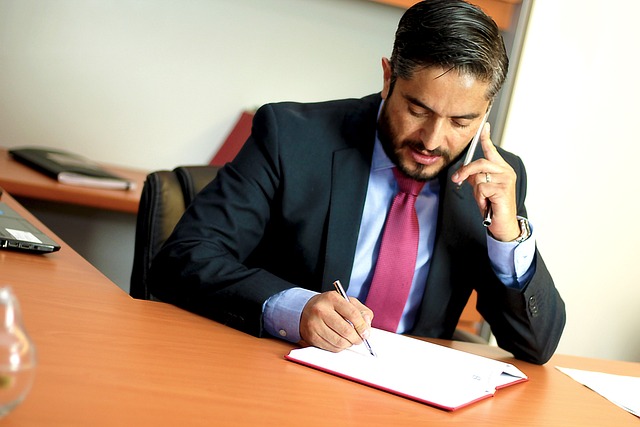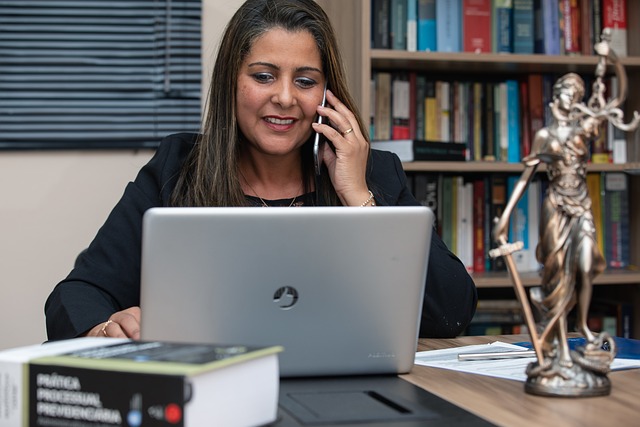When setting up a Power of Attorney (PoA) in the UK, especially for those with international ties or assets, it's vital to appoint a trustworthy attorney who understands financial matters for Property and Financial Affairs LPA or your personal values and beliefs for Health and Welfare LPA. The process involves completing forms through the Office of the Public Guardian (OPG) and ensuring the chosen attorney is fully aware of their responsibilities. For PoAs to be recognized internationally, professional UK translation services are essential to translate these documents into the client's native language while maintaining legal accuracy and cultural context. These specialized translation services are crucial for anyone dealing with cross-border legal matters, as they ensure that the PoA meets both UK and international legal standards, thus safeguarding the donor's wishes across jurisdictions.
navigating the complexities of legal authorization in the UK is paramount for individuals and families alike. This article delves into the essential aspects of Powers of Attorney (PoAs) within the UK’s legal system, offering clarity and guidance. We explore the intricacies of the UK’s PoA framework, the diverse roles they serve, and the steps necessary to establish one. Additionally, we address key selection criteria for attorneys under UK law, and the importance of professional translation services when international elements are involved. For those managing PoAs across borders, understanding registration, updating procedures, and potential challenges is crucial. This comprehensive guide ensures you are well-informed to make prudent decisions regarding your affairs or those of your loved ones.
- Understanding the Legal Framework for Powers of Attorney in the UK
- The Role and Types of Powers of Attorney in the UK
- Steps to Create a Power of Attorney in the UK
- Key Considerations for Choosing an Attorney under UK Law
- Translation Services for International Applications of Powers of Attorney
- How to Register and Update a Power of Attorney in the UK
- Navigating the Challenges of Cross-Border Powers of Attorney in the UK
Understanding the Legal Framework for Powers of Attorney in the UK

In the UK, the concept of a Power of Attorney (PoA) is a legal tool that allows individuals to appoint someone else to make decisions on their behalf in specific or general circumstances. This arrangement is particularly valuable for those who may lose capacity to make decisions due to illness or injury. The legal framework governing Powers of Attorney in the UK is outlined in the Mental Capacity Act 2005, which provides a clear and structured approach to decision-making when individuals are no longer able to do so themselves. There are two primary types of PoA in the UK: the Ordinary Power of Attorney and the Lasting Power of Attorney (LPA). The Ordinary Power of Attorney is effective while the individual has the mental capacity to make decisions, typically used for temporary situations like holidays or business absences. On the other hand, the LPA is designed to continue in effect even if the individual loses mental capacity, covering either financial decisions or health and welfare decisions.
Navigating the legal requirements for a Power of Attorney involves understanding the different types available and the specific conditions under which they can be invoked. It’s crucial for individuals to consider their future capabilities and to plan accordingly. This is where UK translation services play a pivotal role, especially for non-English speaking individuals or those who prefer to have PoA documentation in multiple languages. These services ensure that the legal nuances of PoAs are accurately conveyed across language barriers, facilitating clear understanding and compliance with UK laws. For those considering setting up a Power of Attorney, it is advisable to seek professional guidance to tailor the PoA to individual needs and to navigate the legal complexities involved in this process. Understanding the legal framework for Powers of Attorney in the UK requires attention to detail and a thorough grasp of the Mental Capacity Act 2005, ensuring that individuals’ wishes are respected and their well-being is safeguarded.
The Role and Types of Powers of Attorney in the UK

In the UK, Powers of Attorney (PoAs) are legal instruments that empower individuals (referred to as ‘donors’) to appoint one or more persons (known as ‘attorneys’) to make decisions on their behalf in specific circumstances or generally. This arrangement is particularly crucial for those who may lose mental capacity in the future, ensuring that their personal and financial affairs are managed by someone they trust. There are two primary types of PoAs: the Ordinary Power of Attorney and the Lasting Power of Attorney (LPA). The Ordinary Power of Attorney becomes effective once the donor loses mental capacity and is typically used for a limited purpose or duration. On the other hand, the LPA can be set up to take effect either immediately or upon the loss of mental capacity, providing broader powers and covering various aspects such as property and financial affairs, health and welfare, or both. UK translation services play a pivotal role in assisting individuals who require PoAs but may not have the proficiency in English to understand or execute these documents. These services ensure that the intentions and scope of the Powers are accurately conveyed, maintaining the legal validity and effectiveness of the document across different linguistic contexts. This is particularly important for non-English speaking individuals who need to navigate UK legal systems and authorization laws, ensuring their choices for attorney and the extent of their powers are clearly communicated and legally sound.
Steps to Create a Power of Attorney in the UK

When an individual in the UK requires someone to handle their financial affairs or make decisions about their health and welfare, establishing a Power of Attorney (PoA) is a legally sound approach. The process begins by selecting an attorney, who is the person or persons authorized to act on your behalf. This attorney can be an individual, a professional like a solicitor, or a combination of both. It’s crucial to choose someone you trust implicitly, as they will have significant authority over your affairs. Once the attorney is chosen, the next step is to complete the appropriate PoA forms provided by the Office of the Public Guardian (OPG). These forms vary depending on whether you are setting up a Lasting Power of Attorney for financial decisions or health and welfare decisions.
The Lasting Power of Attorney (LPA) for financial affairs involves specifying exactly what powers you wish to grant, including the ability to manage bank accounts, invest, pay bills, and administer property. For the LPA to cover health and welfare, you will detail your preferences regarding medical treatment, daily routine, where you live, and personal care. It’s important to clearly express your wishes in these areas to avoid any ambiguity later on. After completing the forms, they must be signed by both you and your attorney, and then submitted to the OPG for registration. This registration process ensures that your PoA is legally recognized and enforceable. In some cases, individuals may require UK translation services if the attorney resides abroad or if the documents need to be translated into another language. Ensuring clarity in the document’s content and legality of its translation is paramount for the PoA to function effectively as intended. By following these steps diligently, you can create a Power of Attorney in the UK that provides security and peace of mind for both yourself and your chosen attorney.
Key Considerations for Choosing an Attorney under UK Law

When engaging with legal matters, particularly in the context of Powers of Attorney (PoA) within the UK, it is imperative to select an attorney who is not only competent but also trustworthy. The role of an attorney under a Power of Attorney is to manage financial affairs or make decisions regarding health and welfare should you become unable to do so yourself. In the UK, there are two types of PoA: the Property and Financial Affairs Lasting Power of Attorney (LPA) and the Health and Welfare LPA. Each has distinct considerations.
For the Property and Financial Affairs LPA, key considerations include the attorney’s understanding of financial matters and their proficiency in handling assets and investments responsibly. It is advisable to choose someone who can act in accordance with your best interests, reflecting your wishes as closely as possible. Additionally, they should be prepared to interact with UK legal systems effectively, which may involve dealing with translation services if the attorney or relevant parties require assistance with language.
For the Health and Welfare LPA, the focus shifts towards an individual’s personal and medical decisions. Here, it is crucial to select an attorney who understands your values and beliefs, as they will make decisions on treatments, care options, and living arrangements that align with your preferences. Communication skills become paramount in this role, as does the ability to navigate complex healthcare systems and legal frameworks within the UK. Trust, reliability, and a deep understanding of your personal wishes are key when choosing an attorney for both types of LPAs under UK law.
Translation Services for International Applications of Powers of Attorney

When international clients require legal authorisation through Powers of Attorney in the UK, it is imperative to address language barriers effectively. Translation services play a pivotal role in this context, ensuring that the legal documents are accurately translated into the client’s native language and vice versa. This process is not merely about linguistic equivalence; it encompasses a nuanced understanding of legal terminologies specific to UK law, as well as cultural sensitivities. The UK translation services for Powers of Attorney must adhere to stringent quality standards, with certified translators ensuring the authenticity and legality of translated documents. These translations are crucial for the international recognition and enforcement of Powers of Attorney, facilitating a seamless legal process across borders. By leveraging expert translation services, individuals and organisations can navigate the complexities of cross-jurisdictional legal authorisations with confidence, knowing that their documents comply with UK legal authorisation laws and are understood by all parties involved.
How to Register and Update a Power of Attorney in the UK

When an individual in the UK requires someone else to handle their financial affairs or make decisions about their health and welfare, a Power of Attorney (PoA) document is instrumental. This legal tool allows one to appoint a trusted person or ‘donee’ to act on their behalf. To register a PoA in the UK, the process begins with completing the appropriate forms provided by The Office of the Public Guardian (OPG). It is crucial to provide accurate information and follow the guidelines closely to avoid delays. Upon completion, the donee must understand their responsibilities and the scope of authority granted to them.
Once the form is submitted, the OPG will review it to ensure it meets all legal requirements. If the application is approved, the PoA becomes valid and legally recognized. It’s important to note that a UK PoA is not automatically recognized internationally. For those who may need their PoA document to be used abroad, or if the principal or donee resides outside of the UK, it may be necessary to use professional Powers of Attorney UK translation services to ensure the document is legally valid in another country. Similarly, if circumstances change and the PoA needs to be updated or revoked, the process must be followed anew, ensuring that any changes are clearly communicated and legally documented through the OPG. This step is vital to maintain clarity and legality in the management of one’s affairs.
Navigating the Challenges of Cross-Border Powers of Attorney in the UK

When individuals consider setting up a Power of Attorney (PoA) in the UK, they must navigate the complexities of cross-border considerations. The UK’s legal framework for PoAs is robust, yet it intersects with international law, presenting unique challenges. For those who have assets or reside abroad but wish to appoint a UK-based attorney to manage their affairs, translating legal documents and ensuring compliance with both the UK’s and the foreign jurisdiction’s regulations is paramount. This is where Powers of Attorney UK translation services play an indispensable role. They facilitate the understanding and execution of PoAs across different legal systems by providing accurate translations and guidance on the necessary steps to ensure recognition and enforceability of foreign PoAs in the UK. It is crucial for expatriates and international investors to engage with such specialized services to avoid potential issues that may arise from differences in legal requirements, ensuring their wishes are respected and their affairs are managed effectively regardless of geographical boundaries.
Navigating the complexities of legal authorization in the UK, particularly through Powers of Attorney (PoAs), is crucial for individuals seeking to plan for their financial and personal welfare. This article has demystified the UK’s legal framework surrounding PoAs, detailing their roles, types, and creation processes. It has also highlighted the importance of careful attorney selection and provided guidance on registering and updating these authorizations. For those requiring assistance with international applications, the availability of translation services for Powers of Attorney UK ensures that cross-border considerations are adequately addressed. In conclusion, understanding and adhering to UK PoA laws is imperative for safeguarding one’s interests, and the outlined steps provide a clear pathway to compliance, ensuring peace of mind for both the principal and their appointed attorney.
